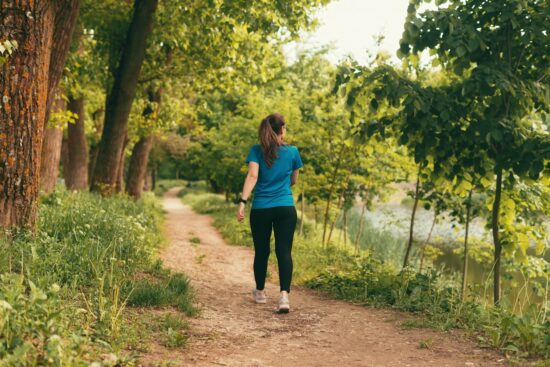In an age where technology dominates our daily lives, it’s easy to forget the solace and rejuvenation that nature offers. As urbanization expands and screens become omnipresent, the natural world often feels like a distant escape rather than an integral part of daily life. Kevin Morgan understands that countless studies and personal anecdotes highlight the profound benefits of spending time outdoors. From mental clarity to physical health, nature provides a sanctuary that nurtures the body and mind.
1. Mental Health and Emotional Well-being
The modern world brings constant stressors—work deadlines, financial pressures, and social commitments. Immersing yourself in nature acts as a natural antidote to these strains. Research published in the journal Frontiers in Psychology found that spending just 20 minutes in a natural setting can significantly lower cortisol levels, the body’s primary stress hormone.
Moreover, nature fosters mindfulness, pulling individuals into the present moment. Whether it’s the sound of rustling leaves or the sight of a vibrant sunset, the natural world demands attention in a way that soothes racing thoughts. This mindfulness, in turn, reduces anxiety and depression. Forest bathing, or “shinrin-yoku” as it’s known in Japan, exemplifies this concept. Participants in this practice walk slowly and intentionally through forests, experiencing a marked reduction in mental fatigue and an increase in overall happiness.
2. Physical Health Benefits
Nature isn’t just good for the soul; it’s a powerful booster for physical health. Engaging in outdoor activities like hiking, cycling, or even leisurely walks increases cardiovascular fitness and strengthens muscles. Exposure to sunlight also encourages the production of Vitamin D, which is essential for bone health, immune function, and mood regulation.
Studies also show that time spent in green spaces reduces blood pressure and heart rate, lowering the risk of heart disease. In fact, spending at least two hours a week in nature has been associated with improved health outcomes, according to research from the University of Exeter. These benefits aren’t limited to intense outdoor activities—even passive interaction, such as sitting in a park, contributes to better physical health.
3. Enhanced Creativity and Cognitive Function
If you’ve ever hit a mental block, stepping outside can provide the clarity you need. Nature stimulates the brain in unique ways that artificial environments cannot. A study from Stanford University revealed that individuals who walked in natural settings demonstrated enhanced creativity and problem-solving skills compared to those who walked in urban environments.
Green spaces also bolster memory and attention span. In children, access to outdoor play improves focus, aiding academic performance and social development. Similarly, adults who work near or take breaks in natural surroundings report greater job satisfaction and productivity. Nature acts as a reset button, allowing cognitive processes to recalibrate and operate more efficiently.
4. Building Connections and Social Bonds
Spending time in nature isn’t always a solitary experience—it can strengthen social connections as well. Whether it’s a family hike, a picnic with friends, or a group gardening project, outdoor activities foster relationships and create shared memories.
Engaging in nature-based activities also encourages collaboration and teamwork. Many corporate team-building exercises are designed around outdoor challenges, utilizing nature as a backdrop to promote trust and communication. Furthermore, communities with abundant green spaces tend to experience lower crime rates and stronger neighborhood bonds, emphasizing nature’s role in societal well-being.
5. Encouraging a Sense of Purpose
Nature offers a reminder of life’s interconnectedness. Observing ecosystems at work—bees pollinating flowers, rivers carving valleys, or forests sustaining diverse species—can instill a profound sense of purpose and belonging. For many, time spent outdoors deepens their environmental awareness and motivates them to engage in sustainable practices.
Volunteering in nature-related activities, such as wildlife conservation or community clean-ups, can further amplify this sense of purpose. Such involvement not only benefits the environment but also provides participants with a rewarding sense of contribution and accomplishment.
6. Reconnecting with Simplicity
In a world inundated with complexity, nature provides a return to simplicity. It reminds us of life’s fundamental pleasures: the warmth of the sun, the freshness of the air, and the rhythm of the seasons. These moments of simplicity can be grounding, offering perspective and a break from the fast-paced demands of modern living.
Disconnecting from technology, even briefly, is crucial in maintaining mental clarity. By choosing to spend time in nature, individuals give themselves the space to step away from notifications, emails, and the pressures of staying constantly connected.
Practical Tips to Integrate Nature Into Your Life
For those living in urban environments or with busy schedules, integrating nature into daily life might seem challenging. However, it’s more accessible than you think.
- Morning Walks: Start your day with a stroll in a nearby park or along a tree-lined street.
- Lunchtime Breaks: Instead of eating at your desk, find an outdoor bench or green space.
- Weekend Getaways: Plan regular trips to local hiking trails, lakes, or beaches.
- Gardening: Even a small backyard garden or balcony plants can offer the benefits of interacting with nature.
- Outdoor Hobbies: Take up birdwatching, kayaking, or nature photography to deepen your outdoor experiences.
Spending time in nature is not just a recreational activity; it’s a necessity for holistic health and well-being. It alleviates stress, boosts physical health, sharpens the mind, and strengthens social connections. In our increasingly digital and urbanized world, prioritizing time in the natural environment can offer the balance and rejuvenation we need. Whether you’re walking through a forest, sitting by a lake, or simply tending to a garden, every moment spent in nature is a step toward a healthier, more fulfilling life. So, lace up your hiking boots, grab a water bottle, and venture outdoors—the benefits are waiting.
